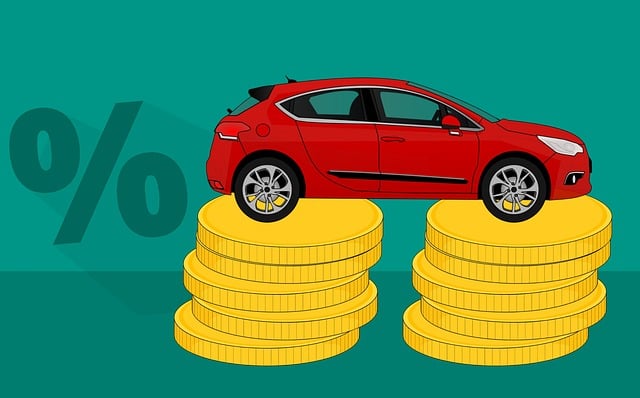Full coverage car insurance with comprehensive roadside assistance offers a robust vehicle protection plan that extends beyond basic policies to safeguard against accidents, theft, vandalism, and natural disasters. It includes lower deductibles compared to minimal coverage plans, ensuring safety-conscious drivers have timely support and peace of mind. The addition of roadside assistance provides vital services like towing, battery assistance, tire changes, and fuel delivery in case of breakdowns or post-accident situations. Understanding auto insurance deductibles is crucial; they are the out-of-pocket costs you pay before coverage kicks in, influencing both premium costs and the extent of your protection. Opting for a higher deductible typically reduces monthly premiums but requires more upfront payment when filing a claim, while a lower deductible involves higher regular payments but less financial strain at claim time. Tailoring your deductible to your budget and risk tolerance is essential for effective vehicle protection planning. A comprehensive full coverage policy with roadside assistance not only protects your vehicle but also enhances your overall driving experience by providing reliable support, potentially saving on deductibles, and contributing to your financial and physical well-being on the road. When selecting between different Auto Insurance Deductibles and Vehicle Protection Plans, consider factors like travel patterns, vehicle condition, and personal driving habits to find a balance that adequately covers you without overburdening your finances in case of an incident.
When navigating the roads, unforeseen vehicle issues can arise, leaving drivers in need of swift assistance. This article explores the critical role of roadside assistance as part of a robust Full Coverage Car Insurance strategy. With essential services like towing, battery aid, flat tire management, and fuel delivery, this coverage extension offers a safety net for motorists, enhancing overall Vehicle Protection Plans and contributing to comprehensive Accident Coverage. Understanding Auto Insurance Deductibles is key to maximizing your plan’s benefits without incurring excessive costs. We will guide you through selecting the ideal plan that balances extensive coverage with cost-effective solutions.
- Maximizing Your Safety and Security with Full Coverage Car Insurance and Roadside Assistance
- Understanding Auto Insurance Deductibles and How They Impact Your Vehicle Protection Plan
- Comprehensive Accident Coverage: The Role of Roadside Assistance in a Complete Auto Insurance Policy
- Choosing the Right Vehicle Protection Plan: Balancing Coverage and Cost with Roadside Assistance Included
Maximizing Your Safety and Security with Full Coverage Car Insurance and Roadside Assistance
When it comes to safeguarding your vehicle and ensuring your security on the road, full coverage car insurance paired with comprehensive roadside assistance plans is a formidable combination. Full Coverage Car Insurance extends beyond the basics, offering a robust shield against a myriad of potential accidents and incidents. This type of policy typically includes collision and comprehensive coverage, which can cover damages to your vehicle from impact with another object or from non-collision events like theft, vandalism, or natural disasters. With full coverage, you benefit from a reduced financial burden due to lower auto insurance deductibles compared to the minimal coverage plans, making it a prudent choice for drivers who prioritize security and value.
In addition to the financial protections offered by Full Coverage Car Insurance, integrating a roadside assistance program into your vehicle protection plans adds an extra layer of defense. Roadside assistance is not just about providing help when you’re stranded; it’s about ensuring that you are never left vulnerable on the side of the road. This service typically includes towing services, battery jump-starts, flat tire changes, and fuel delivery. These benefits are invaluable, especially during unexpected breakdowns or after an accident. Having a dedicated support system can alleviate the stress associated with vehicle malfunctions, ensuring that you receive timely assistance wherever you are. This comprehensive approach to auto insurance and roadside coverage not only protects your vehicle but also enhances your overall driving experience by providing peace of mind and promoting a more secure journey.
Understanding Auto Insurance Deductibles and How They Impact Your Vehicle Protection Plan
When considering a full coverage car insurance policy, it’s crucial to understand how auto insurance deductibles function within your vehicle protection plan. A deductible is the amount you agree to pay out-of-pocket before your insurance coverage kicks in during an accident or claim. This financial commitment can significantly influence the overall cost of your insurance premium and the level of coverage you receive. Opting for a higher deductible typically leads to lower monthly payments, as you’re sharing more of the initial costs with your insurer. Conversely, selecting a lower deductible means higher premiums but less out-of-pocket expense when filing a claim.
The choice between a high and low deductible is part of tailoring your vehicle protection plan to fit your specific needs and financial situation. It’s important to balance the immediate cost with long-term savings, ensuring that you can afford unexpected repairs or replacements without undue hardship. By understanding how auto insurance deductibles affect your full coverage car insurance, you can make informed decisions, aligning your accident coverage with your risk tolerance and financial preparedness. Incorporating roadside assistance as part of your comprehensive policy enhances this protection, providing additional benefits that support you in the event of a breakdown, ensuring that no matter where the road takes you, your vehicle protection plan has you covered.
Comprehensive Accident Coverage: The Role of Roadside Assistance in a Complete Auto Insurance Policy
When considering a robust auto insurance policy, Full Coverage Car Insurance is not merely about managing the aftermath of an accident; it’s about comprehensive vehicle protection plans that safeguard against a multitude of risks. Roadside assistance, an integral aspect of a complete auto insurance policy, plays a pivotal role in this protective suite. It acts as a shield against the unpredictability of the road by offering prompt assistance during unexpected vehicle breakdowns. This can include services such as towing, battery jump-starts, and flat tire changes, even fuel delivery when you run dry. By integrating roadside assistance into your policy, you effectively augment your accident coverage, ensuring a more secure driving experience. It acts as a first responder in the event of a breakdown, minimizing potential damage or further complications that could arise if immediate help isn’t available. Consequently, this proactive approach to vehicle care contributes to keeping your vehicle in optimal condition, which can indirectly mitigate the likelihood of accidents by ensuring your car is in good working order.
Moreover, when it comes to Auto Insurance Deductibles, having roadside assistance as part of your policy can lead to financial savings. Should you encounter an issue that requires professional intervention, the associated costs with roadside services can often be covered without the need to pay a deductible, depending on your policy terms. This not only provides peace of mind but also helps in managing the out-of-pocket expenses typically incurred during such incidents. Overall, the inclusion of roadside assistance within a comprehensive auto insurance policy is a testament to a commitment to complete vehicle protection and can be seen as an investment in your financial and physical well-being on the road.
Choosing the Right Vehicle Protection Plan: Balancing Coverage and Cost with Roadside Assistance Included
When selecting a vehicle protection plan that aligns with your needs and budget, it’s crucial to evaluate Full Coverage Car Insurance options that include roadside assistance. This feature is not just an added convenience but a critical component for ensuring safety on the roads. A comprehensive plan often extends beyond accident coverage to encompass a range of services such as towing, battery assistance, tire changes, and fuel delivery, providing a robust safety net.
In the process of balancing coverage and cost, consider the frequency and nature of your travel, the age and condition of your vehicle, and your personal driving habits. These factors will influence your choice between different levels of Auto Insurance Deductibles and the scope of Vehicle Protection Plans you opt for. For instance, if you frequently travel on long, isolated routes, a plan with a lower deductible and 24/7 roadside assistance might be more prudent. On the other hand, if you primarily drive within familiar urban environments, a plan with higher deductibles but still including roadside assistance might be sufficient. The key is to assess the potential risks against your financial situation to find the right balance. By doing so, you can ensure that in the event of an unexpected breakdown or accident, you have the necessary support without unnecessary financial strain.
In conclusion, integrating full coverage car insurance into your vehicle protection plan is a prudent decision for any driver. It not only offers extensive accident coverage but also includes the invaluable service of roadside assistance. Understanding auto insurance deductibles helps in tailoring a plan that aligns with your specific needs and financial considerations, ensuring comprehensive coverage without unnecessary expenses. By opting for a plan that encompasses roadside assistance, you fortify your overall vehicle protection strategy, providing added security and peace of mind on the road. As such, when considering your auto insurance options, remember the critical role of roadside assistance as a component of full coverage car insurance—a decision that can make all the difference in managing the unexpected nature of vehicle-related incidents.



